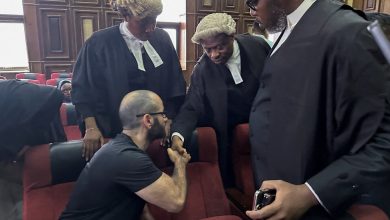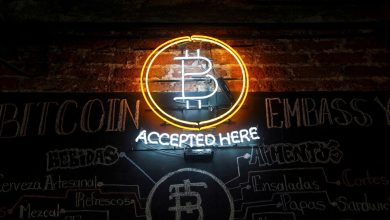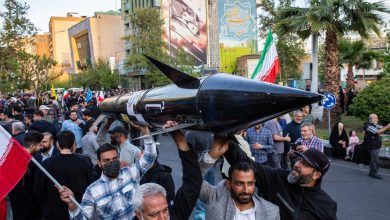
How the Hasty Packing of Biden Papers Led to a Special Counsel Inquiry
In 2018, when the University of Pennsylvania opened the Penn Biden Center, a think tank for Joseph R. Biden Jr. to work out of in Washington following his vice presidency, the school gave the space a striking feature: an office that largely replicated the one in the West Wing that Mr. Biden had vacated the previous year.
Inside that replica office was a closet, and inside the closet, when Patrick Moore opened it in November of last year, were boxes full of papers. Mr. Moore, a lawyer for Mr. Biden’s 2020 campaign, had finally found time to finishing packing up the office — which had gone largely unused since the pandemic — in preparation for shutting it down.
Mr. Moore, seeking to determine which boxes should be sent where, opened them to see what was inside, shipped several containing documents to his law firm’s office in the Boston area — and then came across a document marked as classified that is believed to have come from Mr. Biden’s real West Wing office.
That discovery set in motion a series of events that has led to a Justice Department investigation, the appointment of a special counsel and a fierce political headache for Mr. Biden.
New details of how the documents were found — and how they got there — help to flesh out an episode that has left the White House facing questions about Mr. Biden’s handling of sensitive government documents and his failure for weeks to disclose their discovery not just in the think tank office but also at his home in Wilmington, Del.
The emerging story, based on interviews with people knowledgeable about the sequence of events, appears to have its roots in haphazard tracking of classified papers in Mr. Biden’s office in the Obama White House.
In an interview with “PBS NewsHour” on Wednesday, Mr. Biden seemed to acknowledge that sloppiness in moving material from office to office as he has changed roles over the years.
“One of the things that happened is that what was not done well is, as they packed up my offices to move them, they didn’t do the kind of job that should have been done to go thoroughly through every single piece of literature that’s there,” Mr. Biden said. “But, I’ll just let the investigation, you know, decide what’s going on and we’ll see what happens.”
The special counsel investigation into Mr. Biden’s handling of the documents is playing out against the backdrop of the investigation into former President Donald J. Trump’s possession of large quantities of material he took with him from the White House, including hundreds of classified papers.
Mr. Trump’s departure from the White House was also hastily organized and encompassed the shipment of boxes in which he had kept all kinds of material. But while Mr. Biden’s lawyers immediately notified the National Archives upon discovering the classified documents and have since cooperated with the Justice Department, Mr. Trump put off requests from the archives, initially turned over only a portion of what he had taken, failed to fully respond to a subpoena to return the rest and ultimately was subjected to a search of his Florida home and office by F.B.I. agents with a search warrant.
Understand the Biden Documents Case
The discovery of classified documents from President Biden’s time as vice president has prompted a Justice Department investigation.
- In Washington: Attorney General Merrick B. Garland’s appointment of a special counsel to investigate the situation drew a mixed reception from Republicans, who had hoped to spearhead the effort themselves.
- Biden’s Miscalculations: How has Mr. Biden handled the document discoveries, and why was the public in the dark for so long? Michael D. Shear, a White House correspondent for The Times, joined “The Daily” to discuss the ordeal.
- Implications for Trump Case: Despite the differences between them, the cases involving the president and his predecessor are similar enough that investigators may have a harder time prosecuting Mr. Trump criminally.
- Democrats’ Reaction: Mr. Biden is facing blowback from some members of his own party, as his allies express growing concern that the case could get in the way of the Democrats’ momentum coming out of the midterms.
F.B.I. agents on Friday also searched the home of former Vice President Mike Pence after aides to Mr. Pence agreed to it in discussions with the Justice Department. Aides had found what they described as a small number of classified documents there last month, saying they had been “inadvertently boxed and transported” to Mr. Pence’s home at the end of the Trump administration.
In Mr. Biden’s case, investigators appear to be trying to piece together the chain of custody of the documents in question, with Mr. Moore in some ways at the end of that chain and another Biden aide named Kathy Chung at the beginning.
Ms. Chung, 57, served as a scheduler and assistant to several Democratic senators. In 2012, before President Barack Obama was re-elected, Mr. Biden’s son, Hunter Biden, who had been a colleague of Ms. Chung’s at the Commerce Department during President Bill Clinton’s administration, helped connect her with his father, and she moved to the White House as the manager of Mr. Biden’s West Wing office.
In the year after leaving the White House, she continued to work as an assistant to Mr. Biden. After Mr. Biden became president, she was appointed as the defense secretary’s deputy head of protocol.
In the Obama White House, Ms. Chung sat at a desk in front of the vice president’s office and served as a high-end office manager, keeping him on schedule and responding to invitations. Among her other major responsibilities was ensuring that Mr. Biden received countless briefing memos — and, after he read classified documents, having them returned to the national security aides who handled them.
Over the four years she worked for Mr. Biden at the White House, and for reasons that are still not entirely clear, not all the classified documents were handed back to, or retrieved by, the aides.
As the years went by, a handful of classified documents are believed to have accumulated either in Mr. Biden’s office, in Ms. Chung’s desk or in the office’s credenzas. The documents were mixed with copies of speeches, photographs, and campaign documents and memorabilia, as well as hundreds, if not thousands, of mass cards and condolence letters sent to Mr. Biden after his son, Beau, died in 2015.
The final days of the Obama administration, in January 2017, were particularly hectic, as Mr. Biden continued to use his office for meetings and even took a short trip to Ukraine. Much of the responsibility for packing up Mr. Biden’s office fell to Ms. Chung, who had materials hastily placed into white boxes given to the White House by the General Services Administration.
Ms. Chung has told federal authorities she did not believe at the time that there were presidential records, let alone classified documents, in the boxes. In fact, she believed that the boxes were filled largely with the mass cards and condolence letters from Beau Biden’s death.
While the G.S.A. did not participate in packing the boxes, the agency moved them to a transition office. That office closed several months later, but the Penn Biden Center was still not ready to be opened, so the boxes were taken to another location in downtown Washington, where they remained until they were sent to the think tank.
At the Penn Biden Center, at least some of the boxes were opened and their contents were put into cabinets, although it is unclear who did that and whether any of the classified documents were unpacked. Many of the boxes that contained materials related to Beau Biden’s death, like the condolence letters, remained unopened.
Just as in the West Wing, Ms. Chung had a desk right outside Mr. Biden’s office at the Penn Biden Center. Mr. Biden and other aides — like Antony J. Blinken, who would go on to become secretary of state — used the office as Mr. Biden weighed whether to run for president in 2020. During that period, he generated more paper, including drafts of speeches and newspaper clippings that became mixed in with some of the materials that had originally been sent from the White House.
The office was little used during the pandemic. But by late spring 2022, a year and a half into Mr. Biden’s presidency, a team of his lawyers decided they needed to go through the documents and other materials that remained at the think tank so it could be officially shuttered.
The lawyers included Mr. Biden’s personal lawyer, Bob Bauer; Dana Remus, then the White House counsel, and the campaign lawyer, Mr. Moore.
Ms. Remus reached out to Ms. Chung to determine how they could gain access to the Penn Biden Center.
Ms. Chung took time off from her Pentagon job and went to the think tank office. There, she recognized many of the same documents that had been in the vice president’s office at the end of the Obama administration, and boxed up whatever she could find. She saw that many of the white boxes that had the Beau Biden materials had not been unpacked and were still in the white boxes provided by the G.S.A.
With the boxes packed and ready to go, Ms. Chung has told others she alerted the White House Counsel’s Office. She connected the counsel’s office with the person who could give them access to the think tank office. Having made that connection, Ms. Chung believed that the boxes were headed back to the White House.
But Mr. Biden’s lawyers did not want them sent to the White House. Instead, they wanted the boxes to be examined by Mr. Moore before they were moved to ensure that documents that could be used in his presidential library were sent to the right place and that those personal in nature were sent to his home.
The Biden lawyers saw that as an administrative task on the bottom of their to-do list — and the boxes continued to sit at the think tank for months.
In November, Mr. Moore finally went to the Penn Biden Center to check on what was in the boxes and arrange to move them out.
Mr. Moore had spent 2020 crisscrossing the country for the Biden campaign, but did not go to work in the White House after Mr. Biden’s victory, instead working at a Boston-area law firm (in December, a month after going to check on the boxes in Washington, he was named first assistant attorney general for the state of Massachusetts).
When Mr. Moore arrived at the Penn Biden Center in November, he found the materials related to Beau Biden’s death in the white G.S.A. boxes in a large storage closet.
Mr. Moore went through the materials in that closet with an eye toward sorting through those that were personal and those that could someday be used at Mr. Biden’s presidential library. He identified several documents — like compendiums of speeches Mr. Biden had given on St. Patrick’s Day, and campaign materials — that would probably be needed for the library, and shipped them to his law firm in Boston.
But after those boxes were out the door, Mr. Moore turned to another closet off the mock office, and it was there that he found a document marked classified.
He immediately called the White House Counsel’s Office, which alerted the National Archives and Records Administration.
A message was relayed to Mr. Moore’s law firm: Don’t touch the boxes he had sent there.
In the days that followed, the National Archives retrieved the boxes that were kept at an archives facility in the Boston area, and determined that they did not contain classified documents.
The nature and precise quantity of the classified documents found in the other boxes at the think tank remains unclear.
Kitty Bennett, Charlie Savage and Katie Rogers contributed reporting.



